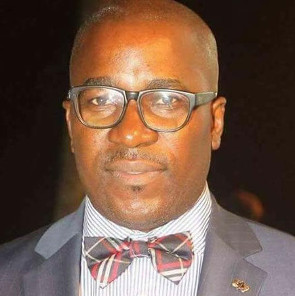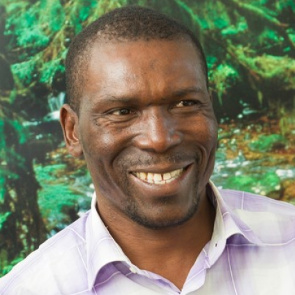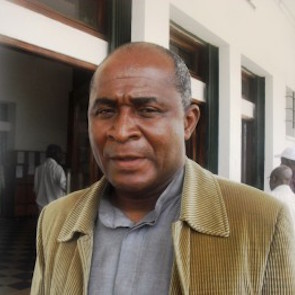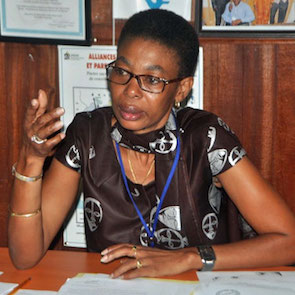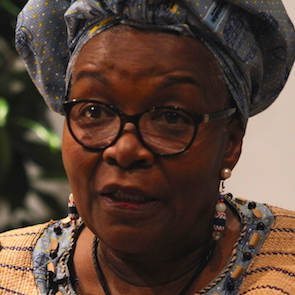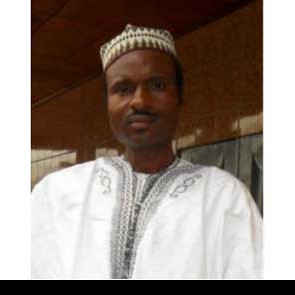UPR Submission - Cameroon 2017
Submission to the 30 Session of the Universal Period Review, May 2018
Date Submitted: 5 October 2017
Introduction and key Concerns
1. This submission focuses on the situation for human rights defenders (HRDs) in Cameroon and covers developments from April 2013 to September 2017. Since Cameroon’s last Universal Periodic Review (UPR), there has been a worsening of the overall situation for the defence of human rights in the country. The criminal justice system was recurrently used to harass and silence political opposition groups, detain and prosecute several journalists, and intimidate HRDs. HRDs were often publicly accused of being foreign agents and attempting to destabilise the country through their activities.
2. During the period under review, the following key issues were of concern to Front Line Defenders:
- The increasingly restrictive legal framework in which human rights defenders operate;
- The specific targeting of human rights defenders on the basis of their legitimate and peaceful work;
- Continued violation of freedom of expression and assembly.
Developments since previous UPR Cycle
3. Despite having accepted 125 out of the 177 recommendations received during its last UPR, Cameroon rejected recommendations pertaining to the respect of freedom of expression and assembly, including from Tunisia to “ensure a favourable climate for the activities of journalists, human rights defenders and other actors of civil society”.
4. There was a deteriorating environment for the exercise of these rights between 2013 and 2017. This was especially noticeable in the context of the government’s response to the Anglophone crisis which arose at the end of 2016. Lawyers, students, teachers and civil society groups engaged in strikes and protests for several weeks in opposition to what they perceived as the marginalisation of the Anglophone minority in the north west and south west regions of the country.
5. The brutality and violence used by security forces to disperse demonstrators during protests organised in October to December 2016 and early 2017 in Bamenda, Kumba and Buea resulted in the deaths of nine protesters. Further deaths were recorded in October 2017. Scores more were severely beaten and wounded while hundreds were arrested.
6. During the period under review, Cameroon faced repeated attacks perpetrated by the armed group Boko Haram in the far north of the country. In responding to the threat, security forces were responsible for a number of human rights violations against the population they were meant to protect. These areas also experienced an increased curtailing of freedoms of expression, with journalists exercising self-censorship in order to avoid repercussions for criticising the government, especially on security matters. HRDs were victims of threats, intimidation and smear campaigns for having denounced security forces abuses.
Restrictive Legislative Framework
7. Despite the fact that Cameroon accepted a recommendation from Egypt to maintain “its positive efforts in the process of reviewing its national laws with a view to bringing them in line with its international human rights obligations”, the government took a step backwards by adopting an anti-terrorism law which was promulgated on 23 December 2014.
8. The law allows for Cameroonian citizens to be charged in military courts and to face the death penalty for acts of terrorism, although the definition of terrorism contained within the law is extremely vague. It includes such acts as disturbing the normal functioning of the public services and the provision of essential services to the population, and creating a situation of crisis within the population. The above poses a serious threat to freedom of information and freedom of press.
9. This law has already been used to target journalists. On 20 April 2017, Radio France International’s Haussa-language correspondent Ahmed Abba was sentenced to 10 years imprisonment and a fine of 84,000 Euro by the Yaoundé Military Court for "non-denunciation of terrorism" and "laundering of the proceeds of terrorist acts”. He was arrested on 30 July 2015 in the city of Maroua while investigating the Boko Haram conflict in the north of the country. He was held incommunicado for three months before being put on trial in February 2016.
10. Prior to that, three journalists – Rodrigue Tongué, Felix Ebole Bola and Baba Wamé - were charged in October 2014, under the Cameroon Criminal Code, with failing to disclose information and sources to the government (‘non-denunciation’) and could face up to five years’ imprisonment if convicted by the Yaoundé Military Court. The three journalists had been investigating allegations of complicity between the security forces and an armed group from the Central African Republic. The HRDs were initially placed under judiciary supervision, which was lifted in early 2015, and their trial commenced in January 2016. It remains ongoing.
Targeting of Human Rights Defenders
11. While Cameroon accepted a recommendation made by the Czech Republic to fully investigate all threats and attacks against human rights defenders and journalists and to bring the perpetrators to justice, the authorities took little to no action to investigate or prevent such occurrences and in some instances made use of the judicial system to arrest, detain and prosecute defenders in reprisal for their work. Other HRDs were victims of smear campaigns and stigmatisation to delegitimise their work.
Judicial harassment, arrest and detention
12. HRDs often faced judicial harassment from both the authorities and companies operating in the country. Of particular concern was the targeting of HRDs denouncing human rights violations and corruption perpetrated by police and magistrates.
13. On 25 September 2017, environmental rights defender Nasako Besingi was arbitrarily arrested by local police officers, gendarmes and army officers in his office in Mundemba, Ndian Division, and brought for questioning to Buea Police headquarters and then later to the Gendarmerie in Buea. He was notified of the initial charges against him of insurrection, threats, hostility and promoting false information. He was then taken to Buea prison that same day. At the time of submitting this report, the investigation was still ongoing. Nasako Besingi had been outspoken in his condemnation of the police violence used against protesters in the context of the Anglophone demonstrations.
14. The previous year, the HRD was charged with conducting unlawful assemblies, and organising and inciting protests. The charges were based on allegations made against him by Herakles Farms in November 2014, following an environmental demonstration he organised in which he distributed t-shirts displaying the quote “No plantation on our land. Herakles farms out!”. He was instructed to either pay a fine of 344,400 CFA Francs (approximately €524) or serve one year in prison. He had previously been convicted on defamation charges, brought against him by the same company.
15. Musa Usman Ndamba, Vice-President of Mbororo Social and Cultural Development Association (MBOSCUDA), a social organisation which has championed the rights, including land rights, of Mbororo pastoralists in north-western Cameroon, was the target of regular campaigns of judicial harassment. At the time of submission, he was the subject of court proceedings on several charges, including defamation.
16. On 4 November 2014, Mouliom Illiassou, President of the Comité National pour la Défense de la Démocratie - CNDD (National Committee for the Defence of Democracy) was arrested at his home by the Foumbot police. The HRD reports on human rights violations in the country, in particular corruption committed by the police and magistrates. Two complaints of “slanderous accusations” were brought against him by members of the police. The charges reportedly arose from a letter sent by the HRD to the Minister of State and the Minister of Justice on 14 October 2014. The letter condemned the arbitrary detention of Naseh Célestin, a member of CNDD, by the police. Mouliom Illiassou was released on bail on 10 March 2015 despite an earlier decision by the First Instance Tribunal of Noun in December 2014 ordering his release and confirming his detention was unlawful.
Intimidation and physical attacks
17. During the period under review, HRDs regularly received anonymous threats by telephone and text message. The authorities failed to condemn the threats and did not act to protect people from the attacks which sometimes followed. HRDs working on minority and land issues as well as those working on lesbian, gay, bisexual, transgender and intersex (LGBTI) rights were particularly vulnerable. A combination of repressive law and a lack of legal protection against discrimination based on sexual orientation and gender identity coupled with widespread homophobic sentiment in the public sphere exposed LGBTI defenders to threats to their physical integrity, assaults and stigmatisation. Environmental defenders were also at increased risk of judicial harassment as those opposing development projects were often labelled as enemies of the state and became targets.
18. In June 2017, HRD Maximilienne Ngo Mbe was subjected to death threats in relation to her support for a number of protesters who were detained following the Anglophone demonstrations. The HRD received a number of threatening phone calls in which she was accused of trying to destabilise the country. She is the Director of Réseau des Défenseurs des Droits de l'Homme de l'Afrique Centrale - REDHAC (Central African Network of Human Rights Defenders). REDHAC is a coalition of HRDs active in eight countries in central Africa, based in Douala. REDHAC supports and advocates for equal rights for the LGBTI community, often in very hostile environments
19. In July 2015, Alhadji Mey Ali, president of OS-Civil Droits de l’Homme (Civil Society Organisation for Human Rights), faced an increased level of intimidation and death threats. Two months later he was subjected to a series of anonymous telephone threats. This followed his sustained action against the impunity surrounding the killing of a member of his organisation who had challenged the appointments of two traditional leaders in 2011. Given the recurrent death threats, he was forced to flee Kousseri together with his family and relocated in another part of the country.
Smear campaigns and stigmatisation of HRDs
20. Another tactic used against HRDs was smear campaigns with the aim of tarnishing their reputation and undermining their work.
21. On 10 March 2015, a presenter from the television channel Afrique Media verbally attacked Maximilienne Ngo Mbe during a radio broadcast by Radio Balafon, a private radio channel in Douala. The presenter, who was a guest on the show, called on the public to mobilise against the HRD and her organisation, REDHAC, condemning them for supporting equal rights for homosexuals and accusing them of being agents of foreign states.
22. A month previously, on 23 February 2015, during a show entitled Le Mérite Panafricain (Pan-African Merit) broadcast by Afrique Media, prominent human rights lawyer Alice Nkom, who is also chairperson of REDHAC and very vocal on LGBT issues, was called a ''so-called lawyer who defends homosexuals'' and ''a witch''. These comments were repeated in an article published by Afrique Media several days later.
Continued violation of freedom of expression and assembly
23. Freedom of peaceful assembly was severely curtailed during the period under review, thus impeding the human rights work undertaken by HRDs. The Law No. 90/055 of 19 December 1990 on public meetings and demonstrations in Cameroon requires seven days prior notification for demonstrations. Although this provision only requires planned meetings to be declared in advance, it has been applied in such a way as to effectively require meetings to be authorised by the relevant officials. Several meetings, including human rights-related press conferences, were suspended by the authorities on the grounds that they presented a threat to public order. It became increasingly difficult for civil society organisations to obtain approval to organise public gatherings, especially after the December 2014 anti-terrorism law was adopted.
23. Unnecessary and excessive force was increasingly used by security forces to police assemblies, and peaceful protesters were subjected to arbitrary detention. Access to the internet and social media was also blocked to prevent peaceful protests. Authorities banned news outlets deemed sympathetic to Anglophone protesters. In a communication on 1 December 2016, The Ministry of Communication requested owners of private radio and television stations to "stop all roundtable discussions... concerning the current political atmosphere" in English-speaking regions of Cameroon.
24. In January 2017, the government arrested two civil society leaders, Barrister Nkongho Felix Agbor-Balla and Dr. Fontem Aforteka’a Neba, representatives of the Anglophone movement, and banned their organisation, Cameroon Anglophone Civil Society Consortium. Authorities also arrested large number of protesters while using excessive force in an attempt to disperse them. Following deaths in late 2016 and early 2017, the number of protesters killed increased after wide scale demonstrations took place on 1 October 2017. These demonstrations were held in response to an appeal for secession that had become increasingly audible, and in celebration of the anniversary of Anglophone Cameroon’s independence from Britain in the country’s English-speaking regions. At least 50 people were wounded and more than 200 arrested in clashes involving police and separatists. A new internet shut down was ordered prior to 1 October protests.
Meetings banned and disrupted
25. In many instances, authorities continued to restrict the activities of HRDs seeking to organise peaceful activities and demonstrations.
26. In May 2017, the NGO Nouveaux Droits de l’Homme - Cameroun (New Human Rights – Cameroon) was prevented from organising an activity to discuss the human rights situation in the country. In a written decision dated 23 May, the prefect of the Yaoundé 1 district held that “because of the threat of disruption of public order, the conference entitled ‘Human rights and the fight against terrorism in Cameroon’, scheduled from 2 pm to 6 pm, is prohibited from taking place”.
27. On 15 September 2015 security forces in Yaoundé arrested Jean Marc Bikoko and a number of his colleagues at a workshop organised by Dynamique Citoyenne, a national network for independent monitoring of public policy, to mark the International Day of Democracy. Despite not having a formal document prohibiting the workshop, police shut down the meeting and forced all participants out of the building. Jean Marc Bikoko was arrested together with five of his colleagues. They remained in administrative detention for 15 days under the 2014 anti-terrorism law.
Recommendations to the Government of Cameroon
Front Line Defenders calls upon the member states of the UN Human Rights Council to urge the Cameroonian authorities to prioritise the protection of HRDs and in doing so to:
- Review and amend the 2014 anti-terrorism law to ensure that its provisions are not used to restrict freedom of expression or association and ensure its compliance with international human rights standards ;
- Take urgent measures to put an end to the arrest and detention as well as judicial harassment against HRDs;
- Guarantee in all circumstances that all HRDs in Cameroon are able to carry out their legitimate human rights activities without fear of reprisals and free of all restrictions and ensure full respect for the UN Declaration on Human Rights Defenders;
- Take measures to ensure that public officials, including members of the government, refrain from making public statements or declarations that stigmatise and undermine the legitimate role played by HRDs, and encourage public recognition of the important role they play in democratic societies;
- End the criminalisation of homosexuality in the Penal Code and ensure that HRDs working on LGBTI issues can do so safely;
- Fully guarantee the exercise of the right to freedom of peaceful assembly, and ensure that public events and gatherings organised by human rights groups are not disrupted;
- Effectively address threats, attacks, harassment and intimidation against HRDs, including, where applicable, by thoroughly, promptly and independently investigating human rights violations and abuses against them and bringing the suspected perpetrators to justice in fair trials without recourse to the death penalty, and providing effective remedies and adequate reparations to the victims;
- Ensure that the judicial system is not misused to target or harass HRDs and refrain from bringing criminal charges or any other proceedings or administrative measures against them that stem solely from the peaceful exercise of their rights.
6https://www.frontlinedefenders.org/en/case/case-history-jean-marc-bikoko...
